- Home
- Herman Melville
Moby Dick Page 9
Moby Dick Read online
Page 9
Now, Bildad, I am sorry to say, had the reputation of being an incorrigible old hunks, and in his sea-going days, a bitter, hard task-master. They told me in Nantucket, though it certainly seems a curious story, that when he sailed the old Categut whaleman, his crew, upon arriving home, were mostly all carried ashore to the hospital, sore exhausted and worn out. For a pious man, especially for a Quaker, he was certainly rather hard-hearted, to say the least. He never used to swear, though, at his men, they said; but somehow he got an inordinate quantity of cruel, unmitigated hard work out of them. When Bildad was a chief-mate, to have his drab-colored eye intently looking at you, made you feel completely nervous, till you could clutch something-a hammer or a marling-spike, and go to work like mad, at something or other, never mind what. Indolence and idleness perished from before him. His own person was the exact embodiment of his utilitarian character. On his long, gaunt body, he carried no spare flesh, no superfluous beard, his chin having a soft, economical nap to it, like the worn nap of his broad-brimmed hat.
Such, then, was the person that I saw seated on the transom when I followed Captain Peleg down into the cabin. The space between the decks was small; and there, bolt upright, sat old Bildad, who always sat so, and never leaned, and this to save his coat-tails. His broad-brim was placed beside him; his legs were stiffly crossed; his drab vesture was buttoned up to his chin; and spectacles on nose, he seemed absorbed in reading from a ponderous volume.
"Bildad," cried Captain Peleg, "at it again, Bildad, eh? Ye have been studying those Scriptures, now, for the last thirty years, to my certain knowledge. How far ye got, Bildad?"
As if long habituated to such profane talk from his old shipmate, Bildad, without noticing his present irreverence, quietly looked up, and seeing me, glanced again inquiringly towards Peleg.
"He says he's our man, Bildad," said Peleg, "he wants to ship."
"Dost thee?" said Bildad, in a hollow tone, and turning round to me.
"I dost," said I unconsciously, he was so intense a Quaker.
"What do ye think of him, Bildad?" said Peleg.
"He'll do," said Bildad, eyeing me, and then went on spelling away at his book in a mumbling tone quite audible.
I thought him the queerest old Quaker I ever saw, especially as Peleg, his friend and old shipmate, seemed such a blusterer. But I said nothing, only looking round me sharply. Peleg now threw open a chest, and drawing forth the ship's articles, placed pen and ink before him, and seated himself at a little table. I began to think it was high time to settle with myself at what terms I would be willing to engage for the voyage. I was already aware that in the whaling business they paid no wages; but all hands, including the captain, received certain shares of the profits called lays, and that these lays were proportioned to the degree of importance pertaining to the respective duties of the ship's company. I was also aware that being a green hand at whaling, my own lay would not be very large; but considering that I was used to the sea, could steer a ship, splice a rope, and all that, I made no doubt that from all I had heard I should be offered at least the 275th lay-that is, the 275th part of the clear net proceeds of the voyage, whatever that might eventually amount to. And though the 275th lay was what they call a rather long lay, yet it was better than nothing; and if we had a lucky voyage, might pretty nearly pay for the clothing I would wear out on it, not to speak of my three years' beef and board, for which I would not have to pay one stiver.
It might be thought that this was a poor way to accumulate a princely fortune-and so it was, a very poor way indeed. But I am one of those that never take on about princely fortunes, and am quite content if the world is ready to board and lodge me, while I am putting up at this grim sign of the Thunder Cloud. Upon the whole, I thought that the 275th lay would be about the fair thing, but would not have been surprised had I been offered the 200th, considering I was of a broad-shouldered make.
But one thing, nevertheless, that made me a little distrustful about receiving a generous share of the profits was this: Ashore, I had heard something of both Captain Peleg and his unaccountable old crony Bildad; how that they being the principal proprietors of the Pequod, therefore the other and more inconsiderable and scattered owners, left nearly the whole management of the ship's affairs to these two. And I did not know but what the stingy old Bildad might have a mighty deal to say about shipping hands, especially as I now found him on board the Pequod, quite at home there in the cabin, and reading his Bible as if at his own fireside. Now while Peleg was vainly trying to mend a pen with his jack-knife, old Bildad, to my no small surprise, considering that he was such an interested party in these proceedings; Bildad never heeded us, but went on mumbling to himself out of his book, "Lay not up for yourselves treasures upon earth, where moth-"
"Well, Captain Bildad," interrupted Peleg, "what d'ye say, what lay shall we give this young man?"
"Thou knowest best," was the sepulchral reply, "the seven hundred and seventy-seventh wouldn't be too much, would it?-'where moth and rust do corrupt, but lay-'"
Lay, indeed, thought I, and such a lay! the seven hundred and seventy-seventh! Well, old Bildad, you are determined that I, for one, shall not lay up many lays here below, where moth and rust do corrupt. It was an exceedingly long lay that, indeed; and though from the magnitude of the figure it might at first deceive a landsman, yet the slightest consideration will show that though seven hundred and seventy-seven is a pretty large number, yet, when you come to make a teenth of it, you will then see, I say, that the seven hundred and seventy-seventh part of a farthing is a good deal less than seven hundred and seventy-seven gold doubloons; and so I thought at the time.
"Why, blast your eyes, Bildad," cried Peleg, Thou dost not want to swindle this young man! he must have more than that."
"Seven hundred and seventy-seventh," again said Bildad, without lifting his eyes; and then went on mumbling-"for where your treasure is, there will your heart be also."
"I am going to put him down for the three hundredth," said Peleg, "do ye hear that, Bildad! The three hundredth lay, I say."
Bildad laid down his book, and turning solemnly towards him said, "Captain Peleg, thou hast a generous heart; but thou must consider the duty thou owest to the other owners of this ship-widows and orphans, many of them– and that if we too abundantly reward the labors of this young man, we may be taking the bread from those widows and those orphans. The seven hundred and seventy-seventh lay, Captain Peleg."
"Thou Bildad!" roared Peleg, starting up and clattering about the cabin. "Blast ye, Captain Bildad, if I had followed thy advice in these matters, I would afore now had a conscience to lug about that would be heavy enough to founder the largest ship that ever sailed round Cape Horn."
"Captain Peleg," said Bildad steadily, "thy conscience may be drawing ten inches of water, or ten fathoms, I can't tell; but as thou art still an impenitent man, Captain Peleg, I greatly fear lest thy conscience be but a leaky one; and will in the end sink thee foundering down to the fiery pit, Captain Peleg."
"Fiery pit! fiery pit! ye insult me, man; past all natural bearing, ye insult me. It's an all-fired outrage to tell any human creature that he's bound to hell. Flukes and flames! Bildad, say that again to me, and start my soulbolts, but I'll-I'll-yes, I'll swallow a live goat with all his hair and horns on. Out of the cabin, ye canting, drab-colored son of a wooden gun-a straight wake with ye!"
As he thundered out this he made a rush at Bildad, but with a marvellous oblique, sliding celerity, Bildad for that time eluded him.
Alarmed at this terrible outburst between the two principal and responsible owners of the ship, and feeling half a mind to give up all idea of sailing in a vessel so questionably owned and temporarily commanded, I stepped aside from the door to give egress to Bildad, who, I made no doubt, was all eagerness to vanish from before the awakened wrath of Peleg. But to my astonishment, he sat down again on the transom very quietly, and seemed to have not the slightest intention of withdrawing. He seemed quite used
to impenitent Peleg and his ways. As for Peleg, after letting off his rage as he had, there seemed no more left in him, and he, too, sat down like a lamb, though he twitched a little as if still nervously agitated. "Whew!" he whistled at last-"the squall's gone off to leeward, I think. Bildad, thou used to be good at sharpening a lance, mend that pen, will ye. My jack-knife here needs the grindstone. That's he; thank ye, Bildad. Now then, my young man, Ishmael's thy name, didn't ye say? Well then, down ye go here, Ishmael, for the three hundredth lay."
"Captain Peleg," said I, "I have a friend with me who wants to ship too– shall I bring him down to-morrow?"
"To be sure," said Peleg. "Fetch him along, and we'll look at him."
"What lay does he want?" groaned Bildad, glancing up from the Book in which he had again been burying himself.
"Oh! never thee mind about that, Bildad," said Peleg. "Has he ever whaled it any?" turning to me.
"Killed more whales than I can count, Captain Peleg."
"Well, bring him along then."
And, after signing the papers, off I went; nothing doubting but that I had done a good morning's work, and that the Pequod was the identical ship that Yojo had provided to carry Queequeg and me round the Cape.
But I had not proceeded far, when I began to bethink me that the Captain with whom I was to sail yet remained unseen by me; though, indeed, in many cases, a whale-ship will be completely fitted out, and receive all her crew on board, ere the captain makes himself visible by arriving to take command; for sometimes these voyages are so prolonged, and the shore intervals at home so exceedingly brief, that if the captain have a family, or any absorbing concernment of that sort, he does not trouble himself much about his ship in port, but leaves her to the owners till all is ready for sea. However, it is always as well to have a look at him before irrevocably committing yourself into his hands. Turning back I accosted Captain Peleg, inquiring where Captain Ahab was to be found.
"And what dost thou want of Captain Ahab? It's all right enough; thou art shipped."
"Yes, but I should like to see him."
"But I don't think thou wilt be able to at present. I don't know exactly what's the matter with him; but he keeps close inside the house; a sort of sick, and yet he don't look so. In fact, he ain't sick; but no, he isn't well either. Any how, young man, he won't always see me, so I don't suppose he will thee. He's a queer man, Captain Ahab– so some think-but a good one. Oh, thou'lt like him well enough; no fear, no fear. He's a grand, ungodly, god-like man, Captain Ahab; doesn't speak much; but, when he does speak, then you may well listen. Mark ye, be forewarned; Ahab's above the common; Ahab's been in colleges, as well as 'mong the cannibals; been used to deeper wonders than the waves; fixed his fiery lance in mightier, stranger foes than whales. His lance! aye, the keenest and the surest that out of all our isle! Oh! he ain't Captain Bildad; no, and he ain't Captain Peleg; he's Ahab, boy; and Ahab of old, thou knowest, was a crowned king!"
"And a very vile one. When that wicked king was slain, the dogs, did they not lick his blood?"
"Come hither to me-hither, hither," said Peleg, with a significance in his eye that almost startled me. "Look ye, lad; never say that on board the Pequod. Never say it anywhere. Captain Ahab did not name himself .'Twas a foolish, ignorant whim of his crazy, widowed mother, who died when he was only a twelvemonth old. And yet the old squaw Tistig, at Gayhead, said that the name would somehow prove prophetic. And, perhaps, other fools like her may tell thee the same. I wish to warn thee. It's a lie. I know Captain Ahab well; I've sailed with him as mate years ago; I know what he is– a good man-not a pious, good man, like Bildad, but a swearing good man-something like me-only there's a good deal more of him. Aye, aye, I know that he was never very jolly; and I know that on the passage home he was a little out of his mind for a spell; but it was the sharp shooting pains in his bleeding stump that brought that about, as any one might see. I know, too, that ever since he lost his leg last voyage by that accursed whale, he's been a kind of moody– desperate moody, and savage sometimes; but that will all pass off. And once for all, let me tell thee and assure thee, young man, it's better to sail with a moody good captain than a laughing bad one. So good-bye to thee-and wrong not Captain Ahab, because he happens to have a wicked name. Besides, my boy, he has a wife-not three voyages wedded-a sweet, resigned girl. Think of that; by that sweet girl that old man had a child: hold ye then there can be any utter, hopeless harm in Ahab? No, no, my lad; stricken, blasted, if he be, Ahab has his humanities!"
As I walked away, I was full of thoughtfulness; what had been incidentally revealed to me of Captain Ahab, filled me with a certain wild vagueness of painfulness concerning him. And somehow, at the time, I felt a sympathy and a sorrow for him, but for I don't know what, unless it was the cruel loss of his leg. And yet I also felt a strange awe of him; but that sort of awe, which I cannot at all describe, was not exactly awe; I do not know what it was. But I felt it; and it did not disincline me towards him; though I felt impatience at what seemed like mystery in him, so imperfectly as he was known to me then. However, my thoughts were at length carried in other directions, so that for the present dark Ahab slipped my mind.
CHAPTER 17: The Ramadan
As Queequeg's Ramadan, or Fasting and Humiliation, was to continue all day, I did not choose to disturb him till towards night-fall; for I cherish the greatest respect towards everybody's religious obligations, never mind how comical, and could not find it in my heart to undervalue even a congregation of ants worshipping a toad-stool; or those other creatures in certain parts of our earth, who with a degree of footmanism quite unprecedented in other planets, bow down before the torso of a deceased landed proprietor merely on account of the inordinate possessions yet owned and rented in his name.
I say, we good Presbyterian Christians should be charitable in these things, and not fancy ourselves so vastly superior to other mortals, pagans and what not, because of their half-crazy conceits on these subjects. There was Queequeg, now, certainly entertaining the most absurd notions about Yojo and his Ramadan;– but what of that? Queequeg thought he knew what he was about, I suppose; he seemed to be content; and there let him rest. All our arguing with him would not avail; let him be, I say: and Heaven have mercy on us all-Presbyterians and Pagans alike– for we are all somehow dreadfully cracked about the head, and sadly need mending.
Towards evening, when I felt assured that all his performances and rituals must be over, I went up to his room and knocked at the door; but no answer. I tried to open it, but it was fastened inside. "Queequeg," said I softly through the key-hole:-all silent. "I say, Queequeg! why don't you speak? It's I-Ishmael." But all remained still as before. I began to grow alarmed. I had allowed him such abundant time; I thought he might have had an apoplectic fit. I looked through the key-hole; but the door opening into an odd corner of the room, the key-hole prospect was but a crooked and sinister one. I could only see part of the foot-board of the bed and a line of the wall, but nothing more. I was surprised to behold resting against the wall the wooden shaft of Queequeg's harpoon, which the landlady the evening previous had taken from him, before our mounting to the chamber. That's strange, thought I; but at any rate, since the harpoon stands yonder, and he seldom or never goes abroad without it, therefore he must be inside here, and no possible mistake.
"Queequeg!-Queequeg!"-all still. Something must have happened. Apoplexy! I tried to burst open the door; but it stubbornly resisted. Running down stairs, I quickly stated my suspicions to the first person I met-the chamber-maid. "La! la!" she cried, "I thought something must be the matter. I went to make the bed after breakfast, and the door was locked; and not a mouse to be heard; and it's been just so silent ever since. But I thought, may be, you had both gone off and locked your baggage in for safe keeping. La! La, ma'am!-Mistress! murder! Mrs. Hussey! apoplexy!"-and with these cries she ran towards the kitchen, I following.
Mrs. Hussey soon appeared, with a mustard-pot in one hand and a vinegar-cruet in the othe
r, having just broken away from the occupation of attending to the castors, and scolding her little black boy meantime.
"Wood-house!" cried I, "which way to it? Run for God's sake, and fetch something to pry open the door-the axe!-the axe! he's had a stroke; depend upon it!"-and so saying I was unmethodically rushing up stairs again empty-handed, when Mrs. Hussey interposed the mustard-pot and vinegar-cruet, and the entire castor of her countenance.

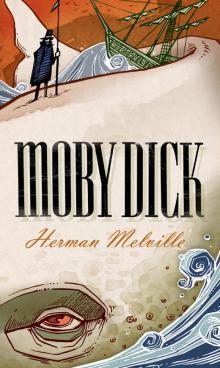 Moby Dick; Or, The Whale
Moby Dick; Or, The Whale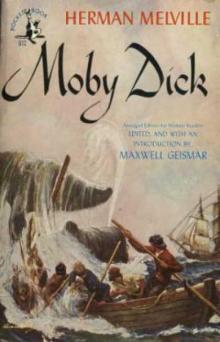 Moby Dick
Moby Dick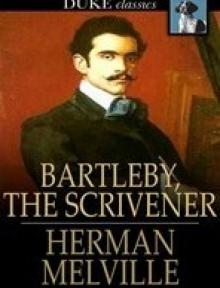 Benito Cereno and Bartleby the Scrivener
Benito Cereno and Bartleby the Scrivener Israel Potter: His Fifty Years of Exile (Annotated Edition)
Israel Potter: His Fifty Years of Exile (Annotated Edition) Billy Budd and the Piazza Tales
Billy Budd and the Piazza Tales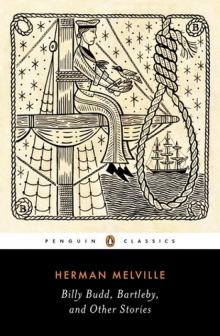 Billy Budd, Bartleby, and Other Stories
Billy Budd, Bartleby, and Other Stories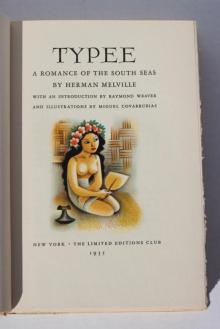 Typee: A Romance of the South Seas
Typee: A Romance of the South Seas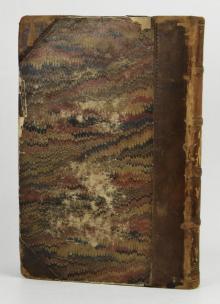 Omoo: Adventures in the South Seas
Omoo: Adventures in the South Seas White Jacket; Or, The World on a Man-of-War
White Jacket; Or, The World on a Man-of-War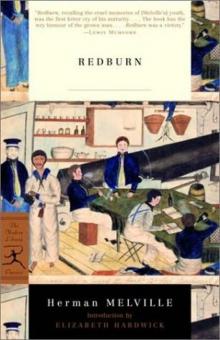 Redburn. His First Voyage
Redburn. His First Voyage Mardi: and A Voyage Thither, Vol. II
Mardi: and A Voyage Thither, Vol. II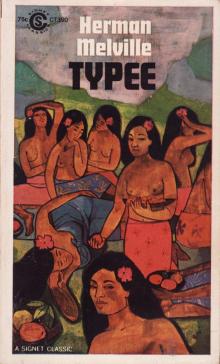 Typee
Typee The Paradise of Bachelors and the Tartarus of Maids
The Paradise of Bachelors and the Tartarus of Maids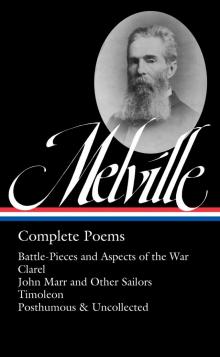 Herman Melville- Complete Poems
Herman Melville- Complete Poems Bartleby and Benito Cereno
Bartleby and Benito Cereno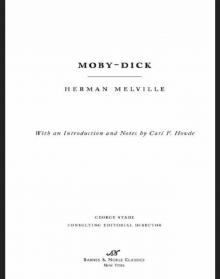 Moby-Dick (Barnes & Noble Classics Series)
Moby-Dick (Barnes & Noble Classics Series) Mardi and a Voyage Thither
Mardi and a Voyage Thither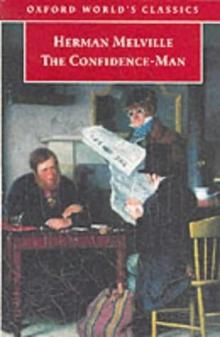 The Confidence-Man
The Confidence-Man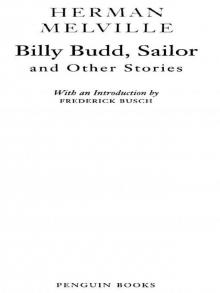 Billy Budd and Other Stories
Billy Budd and Other Stories Bartleby the Scrivener
Bartleby the Scrivener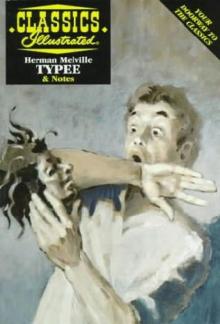 Typee: A Romance of the South Sea
Typee: A Romance of the South Sea I and My Chimney
I and My Chimney Billy Budd
Billy Budd Pierre, Or the Ambiguities
Pierre, Or the Ambiguities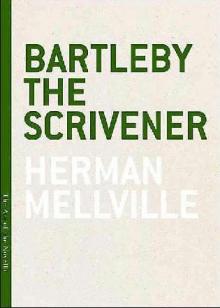 Bartleby, The Scrivener A Story of Wall-Street
Bartleby, The Scrivener A Story of Wall-Street Four Great American Classics
Four Great American Classics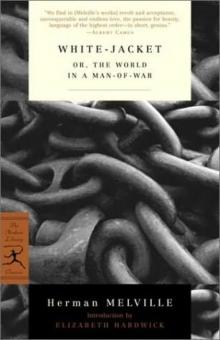 White Jacket or, The World on a Man-of-War
White Jacket or, The World on a Man-of-War The Piazza Tales
The Piazza Tales Israel Potter. Fifty Years of Exile
Israel Potter. Fifty Years of Exile